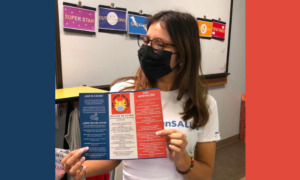
Innovation Research & Training (IRT)
Durham, NC
While mentoring programs have shown positive impact on youth outcomes, leaders of youth mentoring programs urgently need to address two significant, but seldom discussed concerns:
- outcomes vary widely by mentoring program; and
- matches that end prematurely can do more harm than good to mentees.
The two burning questions that should keep mentoring program staff up at night are “How do we make sure we are:
- minimizing the number of short-term matches, and thus, minimizing harm to youth?”
- maximizing the positive impact of mentoring on youth in our program?”
The quick solution, especially for understaffed and under-resourced programs, is to implement high-quality, off-the-shelf training programs like the evidence-based online courses available on the Mentoring Central website– but first, let me give you a more complete answer.
Mentoring should invoke the practice of “first, do no harm.” About 40% of matches end prematurely and mentoring relationships that end abruptly, especially when the ending is unexpected or unplanned, can result in negative youth outcomes such as mentees feeling abandoned or disappointed, or even worse. In addition, experiencing premature closure in a mentoring relationship may evoke or reinforce negative feelings about relationships or self-critical thoughts, and thereby decrease children’s optimism for experiencing positive relationships in the future.
To improve match quality and length, many national and local programs start with requiring volunteers to complete pre-match mentor training like the online training offered by Mentoring Central (see “Big Brothers Big Sisters Selects Mentoring Central To Develop Online Mentor Training Program”). Also, see case study testimonials by other national, regional, and local mentoring programs of how they have integrated and standardized web-based training into their service delivery systems.
Proper training can help mentors prepare for the inevitable challenges that are faced in all relationships, especially those with youth in need. Specifically, effective pre-match mentor training can bolster volunteers’ feelings of being well prepared and ready to start their mentoring relationships. In turn, these feelings of self-efficacy may help to decrease unnecessary and early termination from occurring that may stem from factors such as mentors having unrealistic expectations, unclear or undefined roles, or poor communication skills. Ongoing post-match training and support can also contribute to more effective, more enduring, and higher quality mentoring relationships.
Mentoring Central’s online mentor training program is the only evidence-based mentor training program currently available. Dr. Jean Rhodes, Director, Center for Evidence-Based Mentoring and editor of the Chronical of Evidence-Based Mentoring, praises the courses for this reason –“This user-friendly online course is the only evidence-based training for mentoring youth. Eight years in the making, this rigorously evaluated training will take your mentors through every stage of successful mentoring relationships—from before the match to the final meeting and beyond.” Additional advantages of using these courses to train your mentors include:
- Recent research showed that Mentoring Central’s online trainings were more effective than “training-as-usual”.
- The course content is aligned with Elements of Effective Practice for MentoringTM (4th Edition).
- Busy volunteers can complete training in convenient locations and at times that suit their schedules.
- Integrating these courses into your pre-match training protocol:
- minimizes scheduling problems for staff, which is a common complaint.
- standardizes training across all volunteers.
- allows for scalability of training as more volunteers are recruited.
- Using Mentoring Central’s training for onboarding and professional development of program staff supports the use of a common vocabulary and knowledge of mentoring with volunteers. In fact, staff report finding the content of the training helpful and informative.
- Community- and site-/school-based versions of the training courses are available.
- Staff can monitor and track course progress, knowledge, and completion. If you have funding from federal agencies such as OJJDP and have to report on increases in mentors’ knowledge, then these data can be helpful in your reports.
- Training for mentees and their parents or guardians that includes the same topics and vocabulary is available, too.
Here is what other mentoring organizations have said about Mentoring Central’s pre-match mentor training courses:
- “I’ve had nothing but positive feedback from my Bigs [mentors]. They love how interactive it is.” – Amber Henrichs, Program Director, BBBS of Elderado (CA)
- “[Mentoring Central’s online training] has helped our organization save time and resources, which is extremely important for a new organization with limited resources and funding.” – Ashleigh Diserio, Co-founder, Eyes Wide Open Mentoring
- “It’s important to us to follow the Elements of Effective Practice for Mentoring, so these online courses helped us standardize evidence-based training across all of our sites.” – Atrayus O. Goode, President & Chief Executive Officer, Movement of Youth
For more information about the only evidence-based mentoring training for mentors, go to www.mentoringcentral.net.
Dr. Janis Kupersmidt is a Senior Research Scientist at iRT and Mentoring Central – the leading provider of evidence-based training about mentoring worldwide. Go to www.mentoringcentral.net to learn more.































